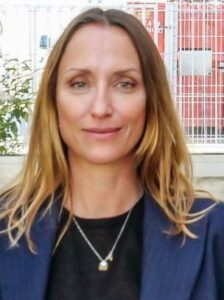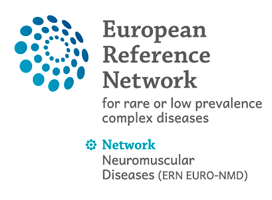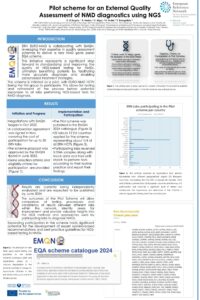23 Apr 2024
Pilot scheme for an External Quality Assessment of NMD diagnostics using NGS

Authors:
Carla D’Angelo (c.dangelo@ern-euro-nmd.eu), C. D‘Angelo, 1 R. Santos, 2 V. Nigro, 3 A. Ferlini, 4 T. Evangelista 5
1ERN EURO-NMD Coordinating Center, Institute of Myology, GH Pitié-Salpêtrière, Paris, France – Paris (France), 2Molecular Genetics Unit, Centro de Genética Médica Dr. Jacinto Magalhães, CHUPorto, Portugal – Porto (Portugal), 3Dipartimento di Medicina di Precisione, Università degli Studi della Campania “Luigi Vanvitelli”, Napoli, Italy – Napoli (Italy), 4Unit of Medical Genetics, Department of Medical Sciences, University of Ferrara, Italy – Ferrara (Italy), 5ERN EURO-NMD, Neuromuscular Morphology Unit, CEEN, Institute of Myology, GH Pitié-Salpêtrière, Paris , France – Paris (France)
P419Pilot scheme o for an External Quality Assessment of NMD diagnostics using NGS
Clinical myology
Diagnostic Tools and Outcomes measures
C. D’angelo 1, R. Santos 2, V. Nigro 3, A. Ferlini 4, T. Evangelista 5.
1ERN EURO-NMD Coordinating Center, Institute of Myology, GH Pitié-Salpêtrière, Paris, France – Paris (France), 2Molecular Genetics Unit, Centro de Genética Médica Dr. Jacinto Magalhães, CHUPorto, Portugal – Porto (Portugal), 3Dipartimento di Medicina di Precisione, Università degli Studi della Campania “Luigi Vanvitelli”, Napoli, Italy – Napoli (Italy), 4Unit of Medical Genetics, Department of Medical Sciences, University of Ferrara, Italy – Ferrara (Italy), 5ERN EURO-NMD, Neuromuscular Morphology Unit, CEEN, Institute of Myology, GH Pitié-Salpêtrière, Paris , France – Paris (France)
Introduction
The European Reference Network for Rare Neuromuscular Disorders (ERN EURO-NMD) aims to help patients with rare NMDs in Europe to receive timely and appropriate diagnosis, treatment and care. One way to increase the number of patients receiving a faster and appropriate diagnosis is to increase the use of next-generation sequencing (NGS) approaches and improve the quality of NGS for NMDs among the EURO-NMD’s 84 Health Care Providers (HCPs) and beyond. To achieve this, EURO-NMD, in collaboration with the European Molecular Genetics Quality Network (EMQN), has established an External Quality Assessment (EQA) scheme for rare NMDs. The rationale behind is that while different labs use different NGS approaches for genetic diagnosis, there is no standard methodology to assess the quality of NGS-based diagnosis of rare NMDs; whereas common diseases have benefitted from EQA schemes for years. This lack of a standard to measure quality is the reason why EURO-NMD is establishing an EQA panel testing scheme to assess the analytical process and reporting of NGS-based tests for NMD diagnosis. The scheme will be open to all labs performing NGS-based tests for NMD diagnosis (including targeted panel testing/virtual panel/clinical exome/WES/WGS), but EURO-NMD HCPs performing both wet and dry NGS-based tests will be the first groups able to apply as part of a pilot scheme starting in 2024. While the scheme focuses primarily on LGMD genes, testing can be performed using any appropriate gene panel for NMDs, as variants outside the scope of an individual laboratory’s panel will be excluded from assessment.
Results
We started negotiations with EMQN for the development of the NMD EQA scheme in Oct 2022 and received formal approval by the EMQN Scientific and Strategic Advisory Board in Jun 2023. We issued a call for EOI to all genetic labs in the EURO-NMD centres in Jul 2023 and have received so far applications from 18 labs in 12 EU countries. Registered EURO-NMD HCPs will each receive three DNA samples with the corresponding mock clinical referral information to test samples according to their routine strategy and report their findings.
Conclusion
Results will be independently assessed and labs will be provided with individual reports detailing their performance and benchmarks against their peers, as well as a certificate of participation. We hope to extend this pilot to all ERN HCPs who wish to do so. In this way, we hope to harmonise genetic testing practices for NMD across Europe.


